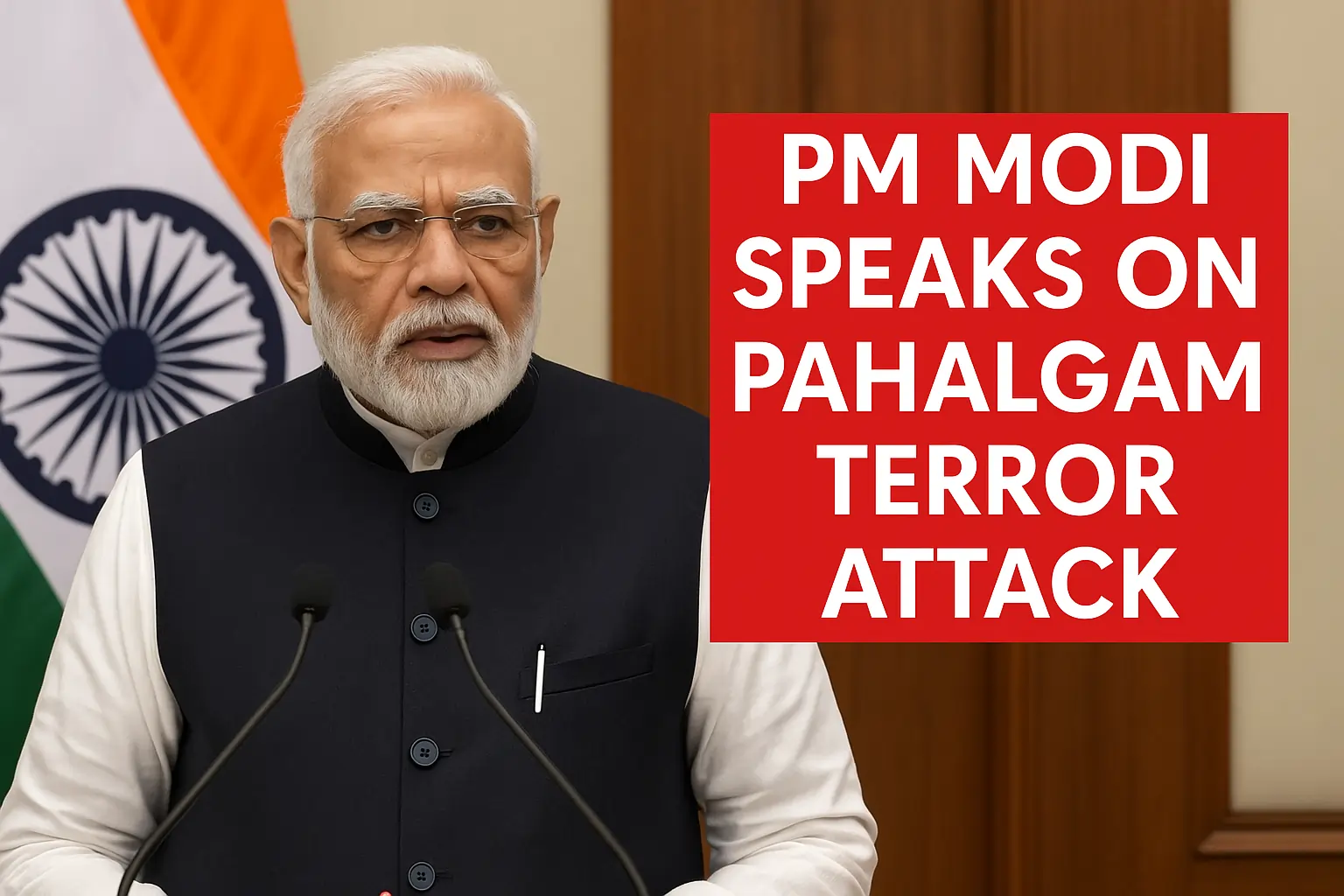Prime Minister Narendra Modi has given India’s armed forces complete operational freedom to decide the mode, timing, and targets of retaliation following the Pahalgam terror attack in Jammu and Kashmir, which claimed 26 lives, mostly tourists.
During a high-level security meeting on Tuesday, PM Modi reaffirmed India’s zero-tolerance policy against terrorism, declaring, “It is our national resolve to deliver a crushing blow to terrorism.”
Key Highlights from PM Modi’s Security Meeting
- Full Operational Freedom to Armed Forces – The military has been empowered to choose how, when, and where to strike back.
- Strong Message to Pakistan – PM Modi vowed to hunt down terrorists and their supporters, ensuring punishment “beyond their imagination.”
- High-Level Attendees – Defence Minister Rajnath Singh, NSA Ajit Doval, Chiefs of Army, Navy, Air Force, and CDS General Anil Chauhan were present.
- Past Precedents – India has previously conducted surgical strikes (2016 Uri attack) and Balakot airstrike (2019 Pulwama attack) in response to Pakistan-sponsored terror.
India’s Tough Measures Against Pakistan After Pahalgam Attack
In a strong response, India has already taken diplomatic and strategic steps, including:
- Suspension of Indus Waters Treaty – Restricting Pakistan’s water supply.
- Increased Security Operations – Enhanced counter-terror operations in J&K.
- Global Diplomatic Pressure – Exposing Pakistan’s role in cross-border terrorism.
What’s Next?
With PM Modi’s clear directive, India is expected to launch a decisive counter-terror operation, possibly targeting terror camps across the border. The armed forces are assessing all options, keeping national security at the forefront.
Conclusion
India’s stance is clear: No more tolerance for terrorism. The Pahalgam attack will be met with a strong, calculated response, ensuring justice for the victims and a stern warning to terror sponsors.
Stay tuned for updates as India prepares its next move.







